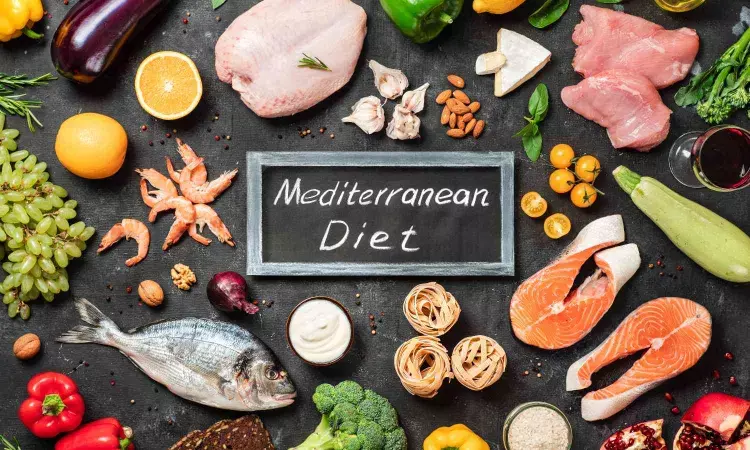- Home
- Medical news & Guidelines
- Anesthesiology
- Cardiology and CTVS
- Critical Care
- Dentistry
- Dermatology
- Diabetes and Endocrinology
- ENT
- Gastroenterology
- Medicine
- Nephrology
- Neurology
- Obstretics-Gynaecology
- Oncology
- Ophthalmology
- Orthopaedics
- Pediatrics-Neonatology
- Psychiatry
- Pulmonology
- Radiology
- Surgery
- Urology
- Laboratory Medicine
- Diet
- Nursing
- Paramedical
- Physiotherapy
- Health news
- Fact Check
- Bone Health Fact Check
- Brain Health Fact Check
- Cancer Related Fact Check
- Child Care Fact Check
- Dental and oral health fact check
- Diabetes and metabolic health fact check
- Diet and Nutrition Fact Check
- Eye and ENT Care Fact Check
- Fitness fact check
- Gut health fact check
- Heart health fact check
- Kidney health fact check
- Medical education fact check
- Men's health fact check
- Respiratory fact check
- Skin and hair care fact check
- Vaccine and Immunization fact check
- Women's health fact check
- AYUSH
- State News
- Andaman and Nicobar Islands
- Andhra Pradesh
- Arunachal Pradesh
- Assam
- Bihar
- Chandigarh
- Chattisgarh
- Dadra and Nagar Haveli
- Daman and Diu
- Delhi
- Goa
- Gujarat
- Haryana
- Himachal Pradesh
- Jammu & Kashmir
- Jharkhand
- Karnataka
- Kerala
- Ladakh
- Lakshadweep
- Madhya Pradesh
- Maharashtra
- Manipur
- Meghalaya
- Mizoram
- Nagaland
- Odisha
- Puducherry
- Punjab
- Rajasthan
- Sikkim
- Tamil Nadu
- Telangana
- Tripura
- Uttar Pradesh
- Uttrakhand
- West Bengal
- Medical Education
- Industry
Mediterranean Diet Interventions Show Positive Impact on Cardiometabolic Health in Youth: A Meta-Analysis

Spain: A systematic review and meta-analysis of 9 studies with 577 participants indicate that Mediterranean diet-based interventions could be effective strategies for improving cardiometabolic health in children and adolescents.
Interventions encouraging adherence to the Mediterranean diet were modestly linked to lower systolic blood pressure (SBP), triglycerides (TGs), total cholesterol (TC), and low-density lipoprotein cholesterol (LDL C) levels, as well as higher levels of high-density lipoprotein cholesterol (HDL C) in youth, the researchers reported in JAMA Network Open.
The Mediterranean diet, characterized by high consumption of fruits, vegetables, whole grains, legumes, nuts, and healthy fats, particularly olive oil, has been associated with reduced risks of chronic diseases in adults. No systematic review and meta-analysis to date have specifically confirmed the association between Mediterranean diet (MedDiet) interventions and cardiometabolic health biomarkers in children and adolescents.
Against the above background, José Francisco López-Gil, One Health Research Group, Universidad de Las Américas, Quito, Ecuador, and colleagues aimed to review and analyze the randomized clinical trials (RCTs) that evaluated the effects of MedDiet-based interventions on biomarkers of cardiometabolic health among children and adolescents.
For this purpose, the researchers searched four electronic databases from the database inception to April 25, 2024. It included RCTs investigating the effect of interventions promoting the MedDiet on cardiometabolic biomarkers (SBP, diastolic blood pressure, TGs, TC, HDL C, LDL C, insulin, glucose, and homeostatic model assessment for insulin resistance [HOMA-IR]) among children and adolescents (aged ≤18 years).
This systematic review and meta-analysis adhered to the Preferred Reporting Items for Systematic Reviews and Meta-Analyses (PRISMA) guidelines. Two independent reviewers extracted data from the selected studies, and the results were summarized using a random-effects meta-analysis.
The effect size for each trial was determined by calculating unstandardized mean differences (MDs) in biomarker levels, including systolic blood pressure (SBP), diastolic blood pressure (DBP), triglycerides (TGs), total cholesterol (TC), HDL cholesterol (HDL-C), LDL cholesterol (LDL-C), glucose, insulin, and HOMA-IR, between intervention and control groups. The quality of evidence was evaluated using the Grading of Recommendations, Assessment, Development, and Evaluations (GRADE) approach.
Based on the study, the researchers reported the following findings:
- Nine RCTs were included (mean study duration, 17 weeks). These studies involved 577 participants (mean age, 11 years; 59.6% girls).
- Compared with the control group, the MedDiet-based interventions showed a significant association with reductions in SBP (mean difference, −4.75 mm Hg), TGs (mean difference, −16.42 mg/dL), TC (mean difference, −9.06 mg/dL), and LDL-C (mean difference, −10.48 mg/dL) and increases in HDL-C (mean difference, 2.24 mg/dL).
- There were no significant associations with the other biomarkers studied (i.e., DBP, glucose, insulin, and HOMA-IR).
"These findings highlight the critical need to encourage healthy eating habits among youth, as such practices can significantly enhance cardiometabolic health from an early age. Specifically, Mediterranean diet-based interventions in various settings—such as schools and hospitals—could serve as effective strategies for improving cardiometabolic health in young populations," the researchers concluded.
Reference:
López-Gil JF, García-Hermoso A, Martínez-González MÁ, Rodríguez-Artalejo F. Mediterranean Diet and Cardiometabolic Biomarkers in Children and Adolescents: A Systematic Review and Meta-Analysis. JAMA Netw Open. 2024;7(7):e2421976. doi:10.1001/jamanetworkopen.2024.21976
Dr Kamal Kant Kohli-MBBS, DTCD- a chest specialist with more than 30 years of practice and a flair for writing clinical articles, Dr Kamal Kant Kohli joined Medical Dialogues as a Chief Editor of Medical News. Besides writing articles, as an editor, he proofreads and verifies all the medical content published on Medical Dialogues including those coming from journals, studies,medical conferences,guidelines etc. Email: drkohli@medicaldialogues.in. Contact no. 011-43720751


